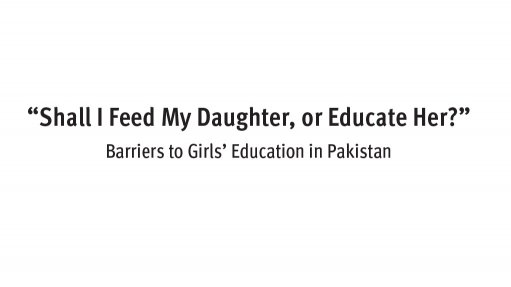
Pakistan was described as “among the world’s worst performing countries in education,” at the 2015 Oslo Summit on Education and Development. The new government, elected in July 2018, stated in their manifesto that nearly 22.5 million children are out of school. Girls are particularly affected. Thirty-two percent of primary school age girls are out of school in Pakistan, compared to 21 percent of boys. By grade six, 59 percent of girls are out of school, versus 49 percent of boys. Only 13 percent of girls are still in school by ninth grade. Both boys and girls are missing out on education in unacceptable numbers, but girls are worst affected.
Political instability, disproportionate influence on governance by security forces, repression of civil society and the media, violent insurgency, and escalating ethnic and religious tensions all poison Pakistan’s current social landscape. These forces distract from the government’s obligation to deliver essential services like education—and girls lose out the most.
There are high numbers of out-of-school children, and significant gender disparities in education, across the entire country, but some areas are much worse than others. In Balochistan, the province with the lowest percentage of educated women, as of 2014-15, 81 percent of women had not completed primary school, compared to 52 percent of men. Seventy-five percent of women had never attended school at all, compared to 40 percent of men. According to this data, Khyber Pakhtunkhwa had higher rates of education but similarly huge gender disparities. Sindh and Punjab had higher rates of education and somewhat lower gender disparities, but the gender disparities were still 14 to 21 percent.
Across all provinces generation after generation of children, especially girls, are locked out of education—and into poverty. In interviews for this report, girls talked again and again about their desire for education, their wish to “be someone,” and how these dreams had been crushed by being unable to study.
Report by the Human Rights Watch